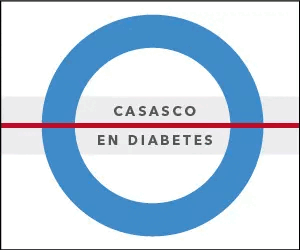Predictive factors of diabetes mellitus remission and weight regain
DOI:
https://doi.org/10.47196/diab.v56i3Sup.571Keywords:
diabetes mellitus, remission, weight regainAbstract
Bariatric/metabolic surgery (BMS) is the most effective treatment for severe obesity. Still, as with all interventions, for weight loss, weight regain can occur with deleterious effects on comorbidities1. Numerous studies have been conducted to understand the extent of weight regain after CBM. However, the reporting of weight regain varies widely among different studies, and the heterogeneity in these definitions hampers clinical research and conspires against a uniform epidemiologic assessment of the problem2.
There are high rates of remission of comorbid conditions after MBC, most of which are evident in the first 2 years after surgery, followed by a decrease in remission from 5 years after surgery, especially for diabetes type 2 diabetes mellitus (DM2) and arterial hypertension (AHT)3. Although the exact mechanism for remission of DM2 after bariatric surgery is not fully understood, several have been proposed. One of these mechanisms involves reduced caloric intake which, in turn, leads to significant weight loss and subsequently improved glucose sensitivity. This was believed to be achieved through the restrictive and/or malabsorptive properties of MBC, however this does not explain some of the dramatic effects seen on glucose control immediately after surgery and therefore the Most of the glucose reduction is achieved before weight loss.
References
I. Courcoulas AP, King WC, Belle SH, et al. Seven-year weight trajectories and health outcomes in the Longitudinal Assessment of Bariatric Surgery (LABS) Study. JAMA Surg 2018;153(5):427-434. doi: 10.1001/jamasurg.2017.5025.
II. Karmali S, Brar B, Shi X, et al. Weight recidivism post-bariatric surgery. Obes Surg 2013;23(11):1922-1933. doi: 10.1007/s11695-013-1070-4.
III. Sjöström L, Peltonen M, Jacobson P, et al. Association of bariatric surgery with long-term remission of type 2 diabetes and with microvascular and macrovascular complications. JAMA 2014;311(22):2297-2304.
IV. Debédat J, Sokolovska N, Coupaye M, et al. Long-term relapse of type 2 diabetes after Roux-en-Y gastric bypass: prediction and clinical relevance. Diabetes Care 2018; 41:2086-2095.
Downloads
Published
How to Cite
Issue
Section
License
Copyright (c) 2022 on behalf of the authors. Reproduction rights: Argentine Diabetes Society

This work is licensed under a Creative Commons Attribution-NonCommercial-NoDerivatives 4.0 International License.
Dirección Nacional de Derecho de Autor, Exp. N° 5.333.129. Instituto Nacional de la Propiedad Industrial, Marca «Revista de la Sociedad Argentina de Diabetes - Asociación Civil» N° de concesión 2.605.405 y N° de disposición 1.404/13.
La Revista de la SAD está licenciada bajo Licencia Creative Commons Atribución – No Comercial – Sin Obra Derivada 4.0 Internacional.
Por otra parte, la Revista SAD permite que los autores mantengan los derechos de autor sin restricciones.

































